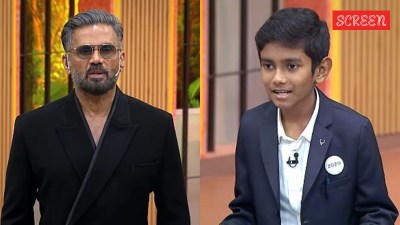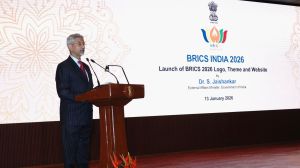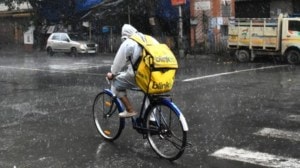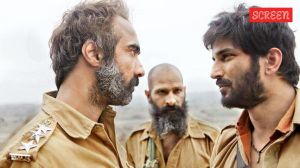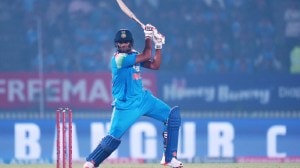Is this security?
9/11 changed the world8217;s security concerns. Unfortunately, in India, the so-called threat perception has given our security agencies an...

9/11 changed the world8217;s security concerns. Unfortunately, in India, the so-called threat perception has given our security agencies an excuse to get away with anything in the name of VVIP protection. It8217;s time to review this security circus. Take airport security. Every airport has huge notices that exempt a host of VVIPs 8212; including the present and former Presidents, present and former PMs, Union Cabinet Ministers, Governors, State CMs, Supreme Court judges, Cabinet Secretary, foreign ambassadors and other foreign diplomats 8212; from security frisking. Now it8217;s inexplicable why CMs of Union Territories, Lt Governors and Union Ministers of State don8217;t share the privilege. This when even the SPG director enjoys the no-frisking status. Should we conclude that the government doesn8217;t trust some of its ministers? MPs have written several times to the Aviation Ministry to rationalise these standards.
The security mania is not restricted to sensitive zones like airports. At functions attended by VVIPs, security agencies don8217;t even spare well-known personalities. When the Prime Minister visits a town, life comes to a standstill. Certain areas are declared off-limits. No wonder Vajpayee, during a recent private conversation after his Kanpur visit, remarked, only half in jest, that if he visited 50 towns, his party would lose in all of them in the next polls.
In Delhi, VVIP cavalcades have become a nightmare. In Rajiv Gandhi8217;s days, traffic stoppages lasted about four minutes; now, they are at least 10 minutes. Contrast this with the US. The American President must be the world8217;s most protected man today. Yet, even after 9/11, traffic flows undisturbed along the fences of the White House in Washington. In no American city, is pedestrian movement restricted because George Bush8217;s convoy is passing by. Those travelling by car are intercepted for not more than three minutes.
I have seen our Prime Minister8217;s cavalcade during his visits to the US. There are only 12 outriders 8212; four move two minutes ahead and block the traffic, four accompany the VVIP car and the remaining four follow as back-up. It8217;s not that they don8217;t take a visiting VVIP8217;s safety concerns seriously. It8217;s just that they can ensure foolproof security with clinical precision without bringing an entire city section to a halt. Unfortunately, in India, security is based on the archaic concept of restricting physical movement. So all that the security agencies do is block roads and try to insulate the cavalcades. This is not only annoying but also ineffective. We have noticed how frequently motorists, or even cyclists, get in the way of VVIP motorcades. The Cabinet and Home Secretary must re-examine the very philosophy of our security management. We must learn to depend more on intelligence inputs and less on physical restriction.
Khaki woes
In the last few months, we have encountered quite a few tragic instances of members of the paramilitary and police forces succumbing to the stress factor. Our society preaches high moral standards but offers little practical support. How can we expect a jawan or constable to be a committed professional if his mind is always plagued by frustrations of living a hand-to-mouth existence, his nerves strained by emotional demands he can8217;t meet, and his body tired due to lack of rest?
We deploy paramilitary forces in difficult terrains, force them to stay away from home for months together, and yet don8217;t pay them enough to ensure their families8217; comfortable existence. Similarly, in cities, we expect constables to stand up against the moneyed and the powerful whose single phone call can get them transferred, to go after dreaded criminals whose firearms are far superior to his. Money can neither compensate for the sacrifice these professions demand nor can it buy integrity. But the low pay-structure has made these jobs rather unattractive. Hence, we don8217;t have enough people coming in to fill the vacancies.
While any misconduct or dereliction of duty should be dealt with strongly, a better pay package and regular service routine would go a long way in ensuring that our jawans get a fair chance to perform as honest, alert professionals.
Wait till the end
Bollywood and the underworld together seem to make a great media hit. Refer to the latest controversy involving Shilpa Shetty8217;s parents. I have always known the Shettys as a nice and homely couple. Forget links with the underworld, they never held a criminal record. It8217;s sad to see the way some have jumped the gun before the investigating agents could draw their own conclusions. The Shettys seem to be victims of their circumstances. Its not that I am demanding a clean chit for them. However, we should be able to differentiate between people with known underworld links and those who have always lived within the boundaries of laws. The case must be thoroughly probed and a concrete picture obtained as soon as possible.
- 01
- 02
- 03
- 04
- 05


